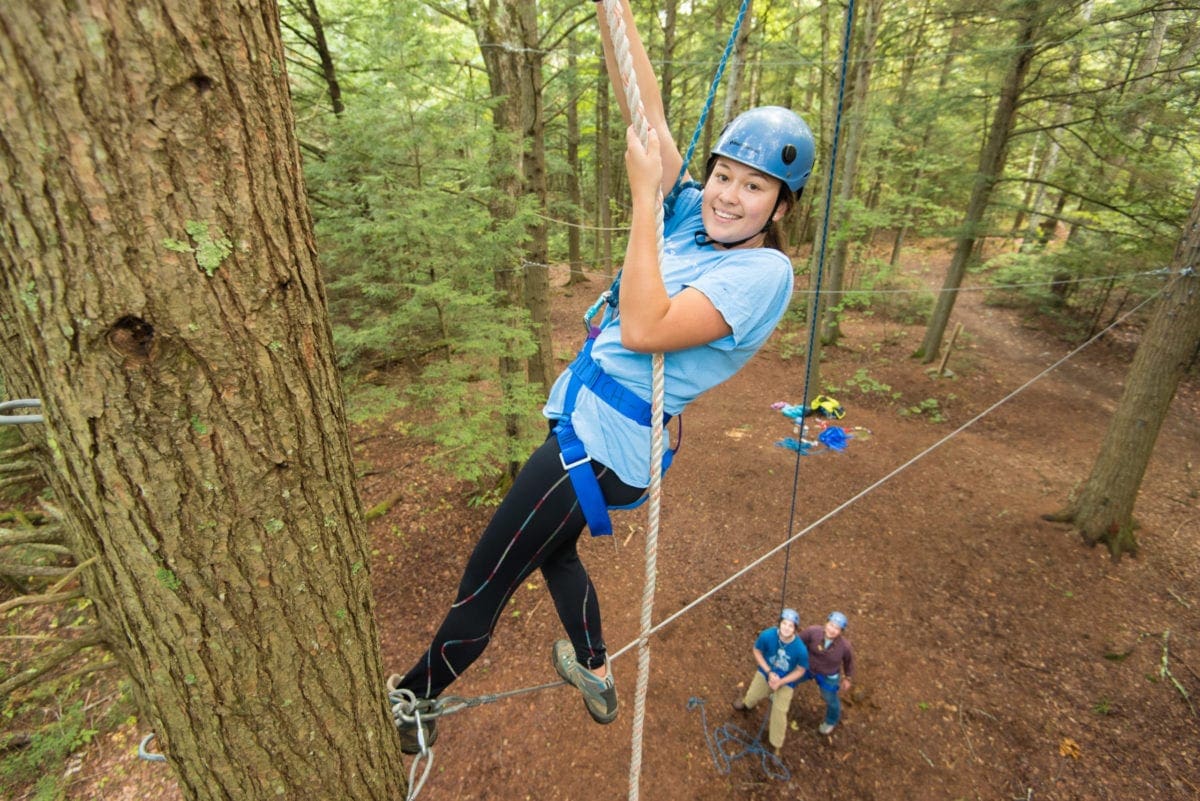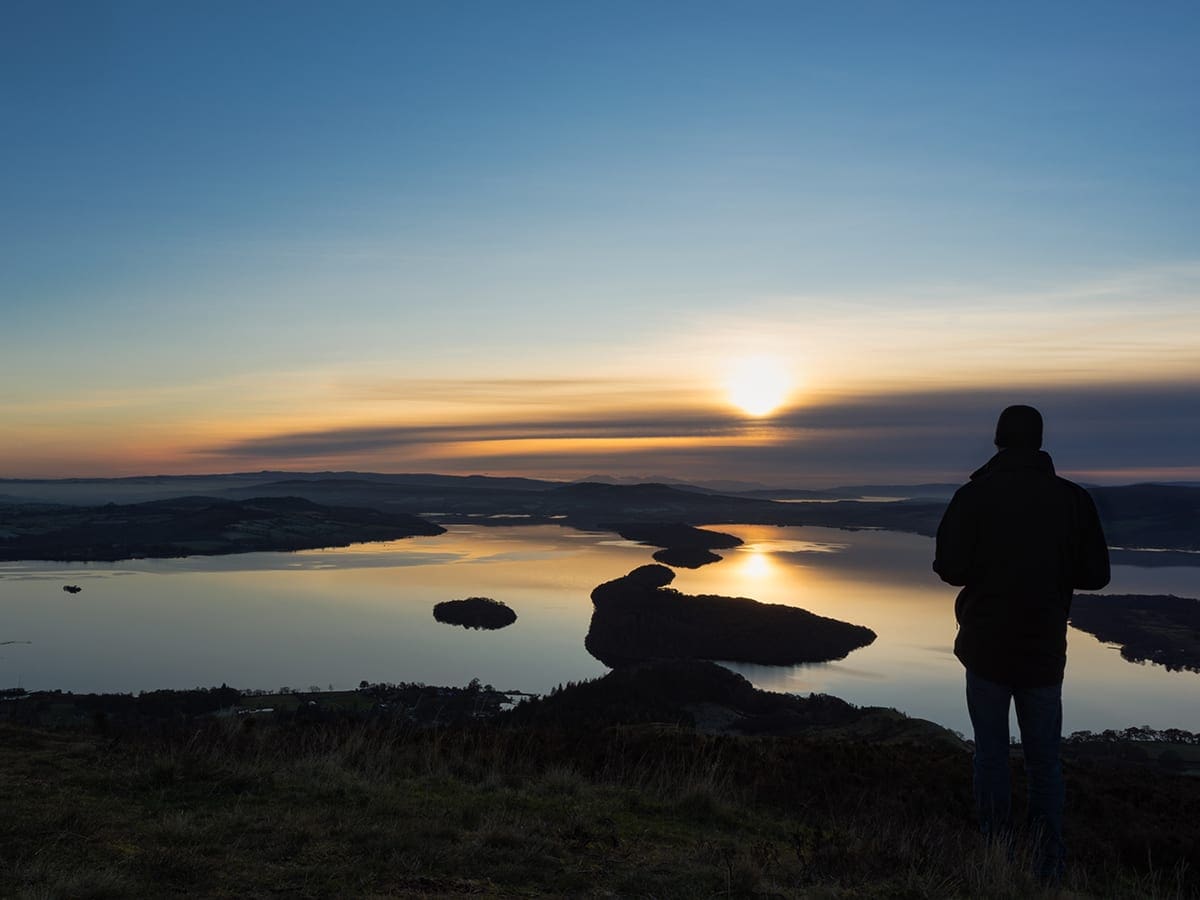
What is Adventure Therapy?
The Association for Experiential Education (AEE) has gone to great lengths to answer the question: What is adventure therapy? The organization has been developing a definition since the early 2000s and has chosen a very thorough—albeit long and complex—definition of the discipline.
We synthesized the best parts and came up with a simpler version:
Adventure therapy is a mental health discipline that uses the natural environment to help individuals cope with and overcome cognitive, behavioral, social, and affective disorders. It prioritizes a therapeutic process in which goal setting, personal decision-making, accountability, and achieving outcomes are used to develop positive behaviors.
Put simply, adventure therapy is about using the wonder and awe of nature to help heal people. Think of that amazing feeling you get when you hike a path you once thought was impassable; or the sense of accomplishment you feel when you reach one of highest peaks; or how rejuvenated you feel after paddling further than you’ve ever gone. Now imagine giving that feeling to someone who is struggling. That’s adventure therapy.
At Unity, the adventure therapy degree focuses on cultivating well-rounded, entry-level mental health professionals who can work in the field and develop a solid foundation of understanding related to treatment programs, fundamental clinical skills, counseling theory, and evidence-based practices.
As someone who is outgoing, adventurous, and not afraid of what’s considered “nontraditional,” this degree could be perfect for you!
Table of Contents:
- What is Adventure Therapy?
- Adventure Therapy in Practice
- Where do Adventure Therapists Work?
- Job Outlook for Adventure Therapy?
- What Skills do Adventure Therapists Need to Succeed?
- The Takeaway
Adventure Therapy in Practice
1. Momenta Center for Lasting Recovery
In 2006, Lise Brown founded Momenta, a women-only residential drug and alcohol rehabilitation facility based in the Colorado mountains. She grew up in an outdoorsy family and wanted to share her experiences with women and children who wouldn’t normally look to the outdoors for support and healing.
“When I do adventure therapy, I think of two things, I think of physical and emotional safety, and then, how can I do those things outside whenever possible?” Brown told It’s Not Just You in a 2017 interview. “And if I can’t do it outside, I think about how I can do things inside that can engage the whole body.”
Brown shows her clients how to apply the lessons they learn in her programs to their daily struggles. For example, she has a program in which kids use knives to make things out of wood. She says it’s a way to teach them to think of a knife not as a weapon, but a valuable tool.
Likewise, her classes engage in “sit spot” sessions, during which she teaches people sit quietly in the forest, be present, and appreciate the tranquility of a distraction-free environment. Ropes courses at Momenta are used for women and children who have exhibited risky behavior—the classes provide the same rush of adrenaline without the consequences of criminal punishment.
2. Outdoor Behavioral Healthcare Center
Dr. Christine L. Norton, is a licensed social worker, an associate professor of social work at Texas State University in San Marcos, and one of the leading research scientists with the Outdoor Behavioral Healthcare Center at the University of New Hampshire.
Norton has led Outward Bound trips and directed outdoor experiential therapy programs for girls, boys, and transgender people and she values the therapeutic side of experiential learning as much as the fun of being outdoors.
“We’re not just going out and playing games, backpacking or doing a climbing day,” she told Misadventures in a 2015 interview. “We’re actually using that activity and the outdoor context to really enhance and empower the client, and to align the goals with their treatment goals.”
Norton’s approach is about creating safe spaces in which clients and instructors—regardless of gender—are supported, respected, transparent, and unafraid of vulnerability. “We all need to be able to say: ‘What level of physical and emotional support do I need in this experience?’ I think men need to get over themselves and also ask those questions.”
Whether it’s bodily hygiene in the backcountry, emotional support among clients and staff, or creating safe spaces for everyone, Norton measures the adventure therapy experience in terms of how the client is progressing in their treatment outcomes.
Where Do Adventure Therapists Work?
It’s understandable to be excited about building a career in adventure therapy after reading the amazing stories of Lise Brown and Dr. Norton. But both of them started their adventure therapy careers working for or participating in Outward Bound—the nationwide network of experiential learning programs that build technical skills, teamwork, self-confidence, and a desire to make a difference in people of all ages.
But, Outward Bound isn’t your only option if you decide to earn a degree in adventure therapy and go on in the field. Some of the most common experiential learning places to work include:
- Outward Bound
- Wingate Wilderness Therapy
- True North Wilderness
- Adventure Treks
- RedCliff Ascent
- National Outdoor Leadership School
- Chewonki
- High Mountain Institute
- Island Wood
- Telluride Mountain School
- Momenta
- Proctor Academy
Job Outlook for Adventure Therapy
As of 2016, adventure therapists worked for government organizations, a smattering of “other” organizations, and mostly within healthcare or social service. The job market for would-be adventure therapists is growing at an average rate through 2026, which means around 1,200 new jobs are projected to become available in that timespan.
The median annual salary for adventure therapists is almost $48,000, but that includes workers at all levels of education and experience. Once you find a job, your salary can vary significantly based on geography and employer and those listed here shouldn’t be considered a starting salary.

What Skills do Adventure Therapists Need to Succeed?
Adventure therapy is a relatively new field and, as such, the “perfect” career path is still undefined. But, certain skill sets will put you in a better position to take your next step—whether that’s more schooling or on-the-job training. Would-be adventure therapists should consider coursework or training in these areas:
- Psychology: Knowledge of human behavior and performance; individual differences in ability, personality, and interests; learning and motivation; psychological research methods; and the assessment and treatment of behavioral and affective disorders.
- Therapy & counseling: Knowledge of principles, methods, and procedures for diagnosis, treatment, and rehabilitation of physical and mental dysfunctions, and for career counseling and guidance.
- Customer Service: Knowledge of customer needs assessments, meeting quality standards for services, and evaluation of customer satisfaction.
- English language: Knowledge of the structure and content of the English language including the meaning and spelling of words, rules of composition, and grammar.
- Education & training: Knowledge of principles and methods for curriculum and training design, teaching and instruction for individuals and groups, and the measurement of training effects.
It should be clear that the skills necessary to get started in this field revolve around understanding, serving, and helping human beings. The field is relatively competitive, which means you’ll need to double-down in these areas to distinguish yourself.
The Takeaway
If you take nothing else away from this article, remember this: A career in adventure therapy can be incredibly rewarding but it’s about more than backpacking and paddling. In most cases, you’ll spend your days helping people who need various types of social, emotional, and psychological support. You’re there for them, not you.
“My reasons for engaging in this work evolved from a self-centered focus on freedom to a heightened appreciation for the role of character education in creating a better world for everyone,” says Dan Miller, chief learning officer at AEE.
A combination of skill sets is crucial for success as an adventure therapist. Unity’s adventure therapy degree focuses on building adventure expertise and leadership skills as well as developing mental and social health theory and practice. But, if you’re drawn more to the instruction/education side of the degree but still want to incorporate the outdoors in your career, check out Unity’s adventure-based environmental education degree program.
Photo credit: Unity Environmental University
Degree Programs




